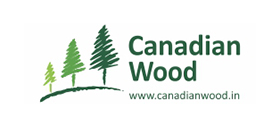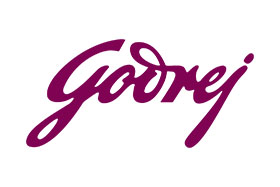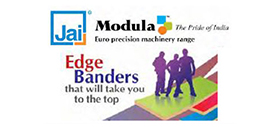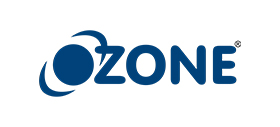Weber sanding tech stands up to Swiss precision

The Weber KSF-5-1600 advanced pre-sanding system was designed for lacquer applications. Photos: Hans Weber Maschinenbau GmbH
Swiss company Riwag Türen AG has quietly built a reputation for something extraordinary: every door they manufacture is unique. Whether it’s an exterior or interior door, a fire-rated model or a wood-metal hybrid, its approach is one of tailored craftsmanship – each piece designed to order, never off-the-shelf.
At the centre of this precision lies not only a commitment to quality and innovation, but also the machines that help maintain that promise at scale. For the company, producing over 900 bespoke doors each week demands more than just skilled labour; it calls for technological partners that can keep pace.
For the past several years, that partner has been Hans Weber, the Germany-based manufacturer known for its cutting-edge sanding and surface treatment machines.
Manufacturing ethos
“No two doors are alike,” notes Remo Albisser, Head of Machinery at Riwag. This mantra defines the company’s approach to production. In a world increasingly focused on mass manufacture, the company doubles down on made-to-order, an approach that requires constant evolution in both design thinking and production engineering.
As customer expectations evolve and regulations around fire protection and material integrity grow stricter, it has stayed ahead by continuously refining its offerings and its methods. Optimizing production processes is not a one-off exercise here – it is part of the company’s operational DNA.
The company’s relationship with Weber began in 2018, during a major upgrade to its finishing operations. As the company prepared to install a fully automated painting line, it sought a sanding solution that could be seamlessly integrated and deliver consistent, high-quality results.
KSF-5-1600
The Weber KSF-5-1600 proved the ideal choice. This advanced sanding system – featuring cross belts, a combined longitudinal belt unit, and planetary heads – was designed for pre-sanding and lacquer sanding.
The machine quickly became a mainstay of the paint line, performing intermediate sanding on wooden surfaces during the painting process. The quality of the sanding, the reliability of the machine, and the ease of integration were all deciding factors.
So, when Riwag recently expanded its production capabilities to include door frames and solid wood components, it was only natural to look to Weber once again.
The newly installed machine was integrated into Riwag’s solid wood production line with minimal disruption. Designed for calibration and fine sanding, the machine’s configuration – featuring contact rollers, cross belts and sanding pads – is optimized for preparing door frames to the same level of perfection as the doors themselves.
But beyond hardware, what sets this setup apart is software. Each door blank and frame piece carries a barcode containing key specifications. Once scanned, the production line (including the Weber unit) automatically configures itself, adjusting sanding thickness and loading the appropriate program.
This not only ensures accuracy, but also guarantees consistency, a difficult feat in fully customized manufacturing.
“The system’s intuitive control and its full integration into our production line gives us both flexibility and repeatability,” Albisser explains. “That combination is essential when you’re not making anything twice.”
Engineering precision
Weber’s influence in this story is no accident. With over a century of experience and more than 500 employees, the German company has carved out a stronghold in sanding technology. While its reputation spans metal grinding, plastics extrusion, and even robotics, it is in wood processing that remains most iconic.
The company’s expertise is not just in the mechanical – patented technologies like the CBF system and planetary heads bring unmatched finesse to surface treatment. For manufacturers like Riwag, it’s the difference between good and exceptional.
As the architectural and interior design industries move toward customization, sustainability, and precision-engineered components, its partnership with Weber represents more than a machine upgrade—it signals a readiness for what lies ahead.
In a space where automation and handcraft must coexist, where each order demands both efficiency and individuality, Riwag has found a formula that works.
With Weber sanding systems now running at full tilt across two major production lines, every frame and panel that passes through the facility reflects the fine balance of old-world commitment and modern machinery.
Comments

- European symposium highlights formaldehyde emission limits
- Egger adopts holistic approach to waste management
- ‘For customers, our lab is an open book’
- Taiwan’s Woodworking Machinery Industry Captivates Global Media on Opening Day of LIGNA 2025
- Coming of age of sustainability
- Intelligent packing line, sander from Woodtech
- Ornare introduces 5 new leather decors
- Richfill Edge Coat offers safer plywood finishing
- Jai’s Optimus range stays ahead of the curve
- Merino’s Acrolam sets new benchmarks in elegance
- Pytha 3D-CAD: where precision meets production
- Raucarp edge bands: simple, affordable
- Greenlam scores a 1st: High Quality Product Award
- Häfele turns space solutions provider
- Hettich bets on intelligent motion for evolving interiors
- Praveedh taking desi innovation to the global stage
- Turakhia shows off its Natural Veneers range
- Egger continues to ‘inspire, create, grow’
- Blum turns heads with new drawer, hinge systems
- Murubi gives American ash a meaningful life
- AR system makes ‘augmented carpentry’ possible
- Felder converts interior firm’s vision to reality
- Smart manufacturing with ‘intelligent’ tools
- Rites of passage: Craftsmanship complements tech in Indian door manufacturing
- Understanding basics of adhesives and sealants
- FFSC looks back at a decade of purpose
- Industrial-grade tools for modern manufacturing
- AWM ties up with Yeutong to boost production
- KolkataWood opens 12-14 September
- AI transforming wood panel manufacturing
- Interzum Jakarta promises a bonanza
- Expert partner in product, factory planning
- CBD Guangzhou 2025 grew 47%
- SCM hosts ‘Timber Construction Days’
- Events Calendar: Industry Fairs you must visit
- Bio-designed ‘leather’ from scrap tyres?
- HiTorc chipper redefines wood processing
- Cooking ‘veggies’ for protein-based adhesives
- Hafele’s digital locks go smart
- Italy’s Essepigi has special door lines
- Mirka is a revolution in sanding, finishing
- Ozone expands range of door hardware
- Adhesives: best practices, applications, choices
- Weber sanding tech stands up to Swiss precision
- Silent heroes in homes: Blum fittings
- Biesse powers ahead with smarter, greener manufacturing
- Homag’s LCS program ensures smooth operation
- Paged Furniture reclaims the past, shapes the future



































